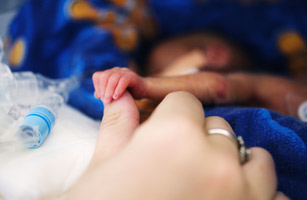
Premature babies who weigh less than 4.5 lb. (2 kg) at birth are five times as likely as babies born at a normal weight to be diagnosed with an autism-spectrum disorder (ASD).
University of Pennsylvania researchers followed 1,105 children, some of whom weighed just 1 lb. at birth. They checked in with the children at ages 2, 6, 9, 16 and 21. When the kids were 16, they were screened for autism. Of the 623 children screened, 117 appeared positive for autism, vs. 506 who appeared negative — a ratio disproportionately high, compared with the general population. "It was very high, and we thought we had a great opportunity to really evaluate them for autism with a diagnostic test," says Jennifer Pinto-Martin, director of the Center for Autism and Developmental Disabilities Research and Epidemiology at the University of Pennsylvania and the study's lead author.
Five years later, when the children were 21, Pinto-Martin used diagnostic tests — which are more accurate than screens — to evaluate 70 of the 117 who had screened positive at age 16 and 119 of the 506 who had screened negative. She found 14 instances of ASD, according to the research, which was published in October in the journal Pediatrics. That rate is five times as high as what's typically found, which Pinto-Martin says is significant enough to warrant routine screening for ASD for low-birth-weight babies. "It's a public-health red flag," says Pinto-Martin. "We have a wave of these children coming down the pike because neonatal care has improved so dramatically. We are saving more and more babies, and the consequences for their health are going to be profound."